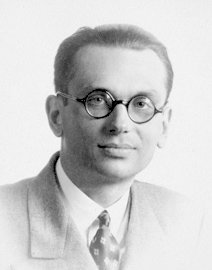A Quote by Francis Bacon
There are and can be only two ways of searching into and discovering truth. The one flies from the senses and particulars to the most general axioms, and from these principles, the truth of which it takes for settled and immovable, proceeds to judgment and to the discovery of middle axioms. And this way is now in fashion. The other derives axioms from the senses and particulars, rising by a gradual and unbroken ascent, so that it arrives at the most general axioms last of all. This is the true way, but as yet untried.
Related Quotes
It cannot be that axioms established by argumentation should avail for the discovery of new works, since the subtlety of nature is greater many times over than the subtlety of argument. But axioms duly and orderly formed from particulars easily discover the way to new particulars, and thus render sciences active.
While the game of deadlocks and bottle-necks goes on, another more serious game is also being played. It is governed by two axioms. One is that there can be no peace without a general surrender of sovereignty: the other is that no country capable of defending its sovereignty ever surrenders it. If one keeps these axioms in mind one can generally see the relevant facts in international affairs through the smoke-screen with which the newspapers surround them.
The development of mathematics toward greater precision has led, as is well known, to the formalization of large tracts of it, so that one can prove any theorem using nothing but a few mechanical rules... One might therefore conjecture that these axioms and rules of inference are sufficient to decide any mathematical question that can at all be formally expressed in these systems. It will be shown below that this is not the case, that on the contrary there are in the two systems mentioned relatively simple problems in the theory of integers that cannot be decided on the basis of the axioms.
When a truth is necessary, the reason for it can be found by analysis, that is, by resolving it into simpler ideas and truths until the primary ones are reached. It is this way that in mathematics speculative theorems and practical canons are reduced by analysis to definitions, axioms and postulates.
One of the most important axioms is, that as the quantity of any commodity, for instance, plain food, which a man has to consume, increases, so the utility or benefit derived from the last portion used decreases in degree. The decrease in enjoyment between the beginning and the end of a meal may be taken as an example.








































